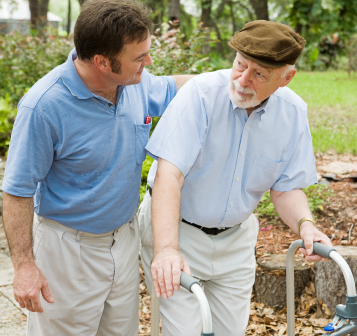 I have written in a number of blog postings and we also have had a number of guest contributions on how to facilitate good residential/moving decisions. There is no doubt that a senior residence takes away the burden of the household chores like mowing lawns, shoveling snow or heavy cleaning. It also offers a greater sense of security, because the campuses of these centers typically are well-insulated from most community threats that can unsettle older adults aging in place. But as a caregiver to an older adult, don’t think that all possible worries or headaches are going away.
I have written in a number of blog postings and we also have had a number of guest contributions on how to facilitate good residential/moving decisions. There is no doubt that a senior residence takes away the burden of the household chores like mowing lawns, shoveling snow or heavy cleaning. It also offers a greater sense of security, because the campuses of these centers typically are well-insulated from most community threats that can unsettle older adults aging in place. But as a caregiver to an older adult, don’t think that all possible worries or headaches are going away.
Here are some suggestions based on my experience with senior residential living:
1. What happens if your older loved has a fall or other accident that demands attention? You will want to speak with the staff at a facility to identify what kinds of alert systems they have in place, who responds in the case of an emergency and where a loved one may be taken in the event of a medical emergency. You may find that you need to request or supply an alert mechanism for your loved one.
2. Who is coordinating your loved one’s medical care? Some – but not all – residences have transportation to and from medical appointments, but others simply leave that to the individual or family unless they are in assisted living. Check into the options available and if someone actually accompanies your older loved one to a medical appointment, be sure they record what is discussed, ask appropriate questions and be sure that all the providers are communicating and coordinating with one another.
3. Is there a care plan for your older loved one? Almost all facilities have some level of health care present such as nurses who are available to check in on residents. Many also have physicians or other providers who will pay visits to attend to certain medical needs like foot care. But a care plan is really all about establishing clear goals for your loved one, identifying what will be done to reach the goals and who is responsible for what parts of the plan. Otherwise you are at risk for simply bouncing from one crisis to another.
4. Is there stimulation for your loved one? One of the great things about senior communities is the relatively easy access to all those neighbors within a protected environment. There are structured activities and events on a fairly regular basis, but who really is attending to and caring for your loved one? The staff at most facilities are just too stretched to provide much personal attention to each of the residents, and without the stimulation from regular interpersonal contact an older loved one declines. If one does not use their social skills, they lose their sociability. You may need to get an aide to spend a certain amount of time with your loved one regularly to help them to be engaged.
Charlotte Bishop is a Geriatric Care Manager and founder of Creative Case Management, certified professionals who are geriatric advocates, resources, counselors and friends to older adults and their families in metropolitan Chicago. Please email your questions to Charlotte (info@creativecasemanagement.com ).



